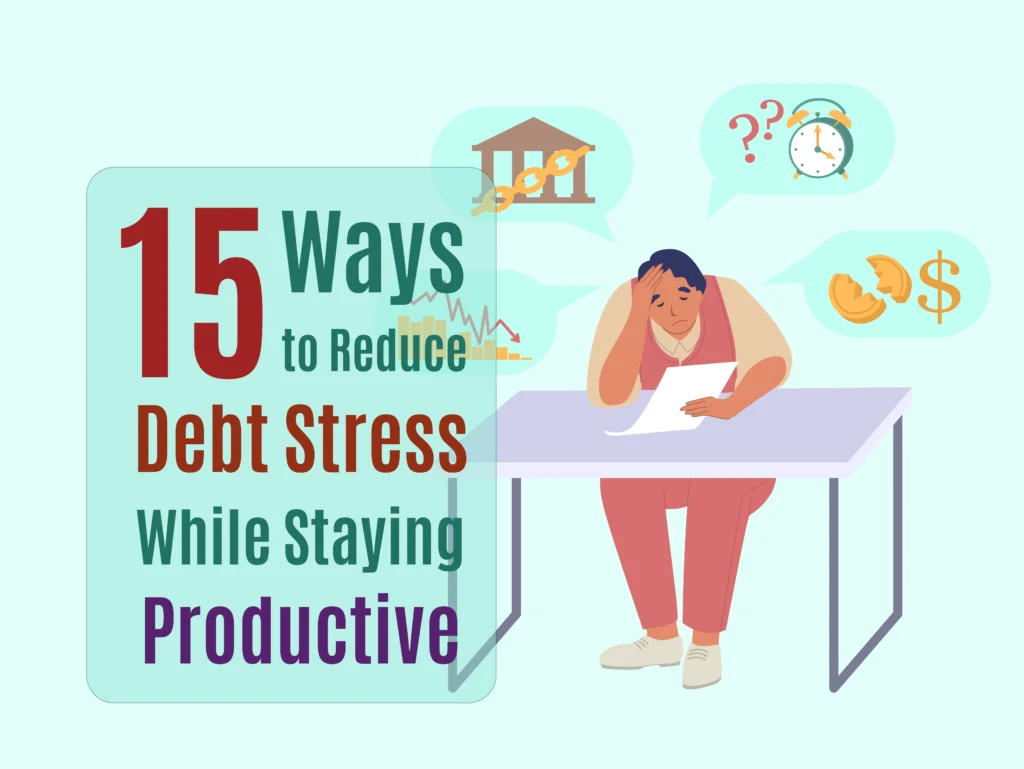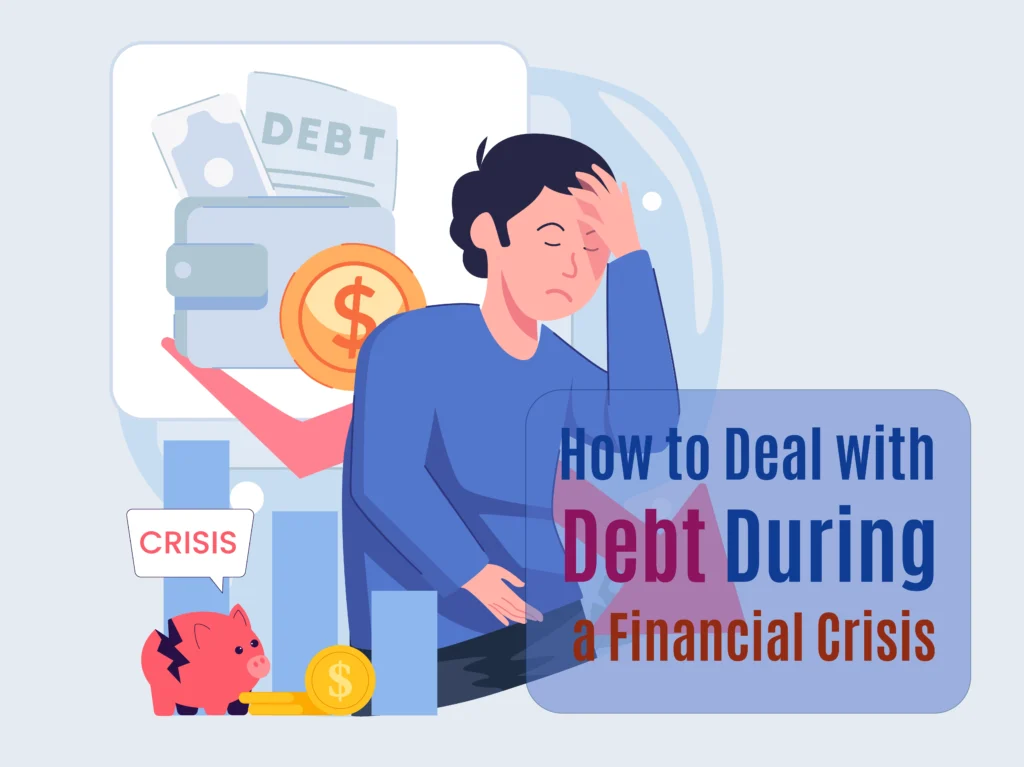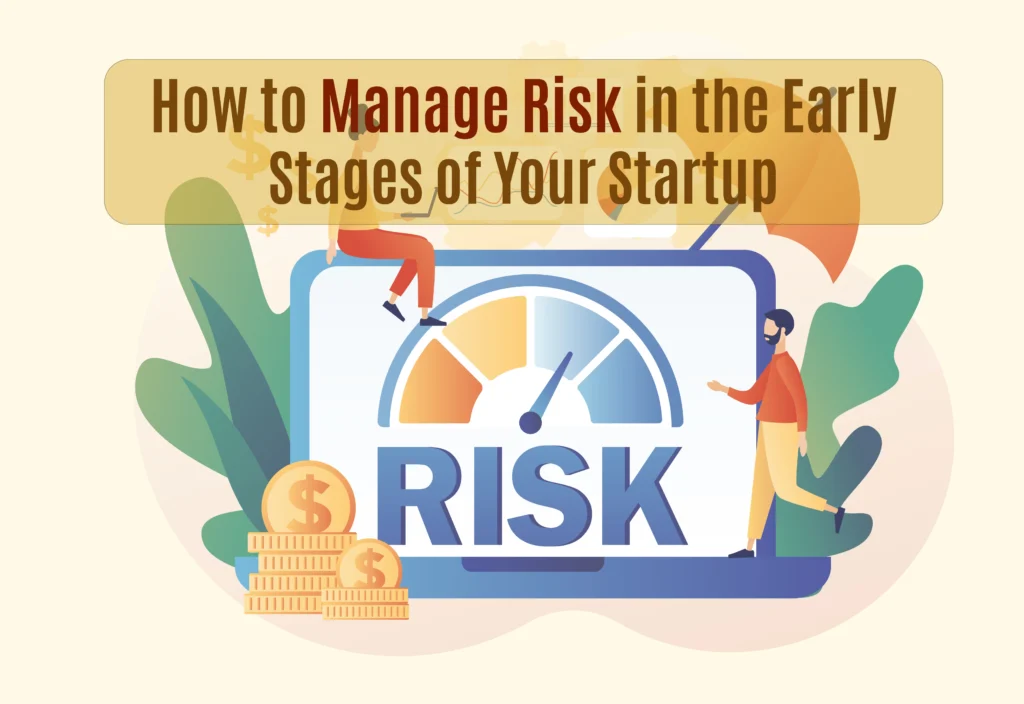How to Avoid Taking on More Debt During the Holidays
The holiday season often brings excitement, but it can also lead to overspending, leaving many with added debt that lingers long after the celebrations have ended. With gift-giving, festive gatherings, and travel plans, it’s easy to fall into the trap of relying on credit cards and loans to fund holiday expenses. However, with some planning and mindful budgeting, you can avoid taking on more debt and still enjoy all the season has to offer. The key is to find a balance that lets you celebrate without sacrificing your financial health.
In this guide, we’ll share actionable tips for navigating the holiday season without stretching your budget thin. From setting realistic spending limits to exploring low-cost gift ideas and prioritizing expenses, each strategy is designed to keep you in control of your finances. By taking these steps, you can enter the new year with financial confidence and a clear path to staying debt-free, no matter how festive the season gets.

Understanding the Holiday Debt Trap
The pressure to spend during the holiday season is enormous. From buying gifts for loved ones to attending holiday events, the costs can quickly add up. Many people feel obligated to spend more than they can afford, leading to a cycle of debt that’s hard to break.
Holiday Spending Pressure
The holidays come with cultural and social expectations that encourage spending. There’s often pressure to buy gifts for friends, family, and co-workers, to host parties, or to travel to visit loved ones. The fear of disappointing others or feeling left out can lead people to spend money they don’t have.
Retailers also take advantage of the holiday spirit by offering promotions, sales, and limited-time deals that make it tempting to overspend.
Emotional Spending During the Holidays
Emotions run high during the holidays, which can lead to emotional spending. Many people feel stressed or overwhelmed, and spending money on gifts, decorations, or travel can feel like a way to cope. Conversely, feelings of joy and excitement can also encourage impulsive purchases.
The desire to make loved ones happy with extravagant gifts or to create the perfect holiday experience can push people to spend more than they intend, often using credit cards to cover the gap.
The Risks of Relying on Credit
While it might seem harmless to put holiday expenses on a credit card, the reality is that this can lead to long-term financial strain. High-interest rates and minimum payments can keep you in debt well into the new year, making it harder to manage your finances. Relying on credit can also make it more challenging to stick to a budget, as it’s easy to lose track of how much you’re spending.
Planning Your Holiday Budget
The key to avoiding debt during the holidays is to create a realistic budget and stick to it. Planning ahead can help you avoid impulsive purchases and keep your spending in check.
Set a Realistic Holiday Spending Limit
Start by determining how much you can reasonably afford to spend during the holidays. This means looking at your current financial situation, including your income, monthly expenses, and any existing debt. Once you have a clear picture, set a spending limit that won’t put you in financial trouble.
Be honest with yourself about what you can afford. It’s better to set a modest budget that you can stick to than to overspend and end up in debt.
Budget for All Holiday-Related Expenses
When planning your holiday budget, don’t forget to include all the hidden costs that can add up. Many people focus only on gifts, but holiday expenses also include things like:
- Travel costs (flights, gas, accommodation)
- Food for holiday meals and parties
- Decorations and holiday supplies
- Wrapping paper, cards, and shipping for gifts
- Clothing for holiday events or parties
By accounting for these extra costs, you’ll have a more accurate budget that helps you avoid surprises.
Prioritize Your Holiday Spending
It’s important to prioritize your spending based on what’s most important to you. Focus on meaningful gifts and experiences rather than feeling obligated to buy something for everyone. You don’t need to give a gift to every acquaintance or spend a lot on decorations or extravagant meals.
Decide which expenses matter most, whether it’s gifts for close family, travel to see loved ones, or hosting a small gathering. Prioritizing helps you spend intentionally and avoid unnecessary debt.
Use a Holiday Budgeting Tool
There are plenty of apps and tools available to help you stick to your holiday budget. Budgeting apps like Mint, YNAB (You Need a Budget), or even a simple spreadsheet can help you track your spending and see where your money is going.
These tools can send alerts when you’re close to reaching your spending limit and help you avoid overspending.
Tips for Avoiding Credit Card Debt
Credit card debt is one of the most common financial traps during the holidays. The convenience of using credit cards for purchases can make it easy to overspend, but there are strategies you can use to avoid falling into this trap.
Use Cash or Debit Instead of Credit
One of the simplest ways to avoid holiday debt is to use cash or a debit card instead of relying on credit. When you use cash or debit, you’re limited to spending what you actually have, which can help you avoid overspending.
If you prefer not to carry cash, using a debit card offers the same benefit—it ensures that you’re only spending money you have in your bank account. You can also use a prepaid card, which allows you to load a specific amount of money onto the card, keeping you within your budget.
Plan Ahead for Big Purchases
If you know that holiday expenses will be significant, start saving for them early. Consider setting aside a small amount each month into a holiday savings fund throughout the year. This way, you’ll have money available for gifts, travel, and other expenses without needing to use credit cards.
For example, if you want to spend $1,000 on holiday gifts and travel, saving $100 a month starting in January will allow you to cover the costs without going into debt.
Avoid Store Credit Cards
During the holidays, many retailers offer store credit card promotions, promising discounts on your purchases if you sign up. While the initial discount can be tempting, store credit cards often come with very high-interest rates. If you don’t pay off the balance in full, you could end up paying more in interest than you saved with the discount.
Instead of relying on store cards, stick to your budget and use cash or debit for your purchases.
Pay Off Credit Card Balances in Full
If you do use credit cards for holiday shopping, make sure you pay off the balance in full at the end of the month. This will help you avoid interest charges and prevent your holiday spending from turning into long-term debt.
Set up reminders or automatic payments to ensure you don’t miss the due date, as late payments can result in fees and hurt your credit score.
≫ Related Post: Understanding the Difference Between Good Debt and Bad Debt
Affordable Holiday Shopping Strategies
The holidays don’t have to be expensive to be meaningful. With some creative shopping strategies, you can give thoughtful gifts and celebrate the season without overspending.
Shop During Sales and Take Advantage of Discounts
One of the easiest ways to save money on holiday gifts is to shop during major sales events like Black Friday, Cyber Monday, or other pre-holiday sales. However, it’s important to shop with a plan and avoid buying things just because they’re on sale.
Create a list of gifts and items you need, and stick to it when shopping during sales. Take advantage of discounts on items you were already planning to buy, rather than being tempted by impulse purchases.
Give Thoughtful, Not Expensive, Gifts
It’s easy to fall into the trap of thinking that more expensive gifts are better. However, thoughtful gifts can often mean more to the recipient than something costly. Consider giving:
- Homemade gifts, like baked goods or crafts
- Experience-based gifts, such as tickets to an event or a dinner out
- Personalized gifts, such as framed photos or customized items
These types of gifts are often more meaningful and show that you put thought into them, rather than simply spending money.
Shop Online for Deals
Shopping online can help you find the best prices for gifts and other holiday essentials. Use price comparison tools like Honey or CamelCamelCamel to track price drops and find deals. Additionally, look for promo codes or free shipping offers to save even more.
Shopping online also allows you to avoid the stress and impulse buys that can come with in-store shopping.
Use Cashback and Rewards Wisely
If you have cashback or rewards programs through your credit cards or apps like Rakuten, use them wisely. Cashback offers can help offset the cost of holiday purchases, but only if you’re not spending more than you would have otherwise.
Don’t chase rewards points by overspending. Instead, focus on using them strategically for planned purchases within your budget.
Avoid Last-Minute Shopping
Last-minute shopping often leads to overspending because you don’t have time to shop around for the best deals. Prices may also be higher closer to the holidays due to increased demand.
Start shopping early so you have time to compare prices and find the best deals. Early planning also reduces stress and ensures that you don’t make impulse buys.
How to Handle Travel Costs During the Holidays
Traveling to visit family and friends is a significant holiday expense for many people. By planning ahead, you can keep travel costs manageable and avoid going into debt.
Book Travel Early
One of the best ways to save money on holiday travel is to book early. Flights, hotels, and car rentals tend to get more expensive as the holidays approach. By booking months in advance, you can lock in lower prices.
Set up fare alerts using websites like Skyscanner or Google Flights to track price changes and book when prices are low.
Use Travel Rewards Points
If you have a travel credit card with rewards points, the holidays are a great time to cash in those points. Use them to cover the cost of flights, hotels, or rental cars, which can significantly reduce your out-of-pocket expenses.
Just be sure to book early, as rewards seats and hotel rooms can fill up quickly during peak travel seasons.
Consider Alternatives to Expensive Travel
If travel costs are too high, consider alternative ways to celebrate the holidays. Instead of flying to visit family, consider staying local and connecting virtually with loved ones. You could also plan a trip during a less expensive time of year when travel is cheaper.
Alternatively, you could drive instead of flying, stay with family or friends instead of booking a hotel, or celebrate with nearby friends if long-distance travel isn’t feasible.
Creative Ways to Celebrate Without Overspending
The holidays aren’t just about gifts—they’re about spending time with loved ones and enjoying meaningful traditions. Here are some ways to celebrate that won’t break the bank.
Organize a Secret Santa or Gift Exchange
Instead of buying gifts for everyone in your family or friend group, suggest a Secret Santa or gift exchange. This way, everyone only needs to buy one gift, which reduces the overall cost for everyone involved.
Set a reasonable spending limit and focus on thoughtful gifts that fit within the budget.
Potluck Holiday Dinners
Hosting a holiday dinner can get expensive if you’re providing all the food. Instead, consider hosting a potluck where each guest contributes a dish. This not only reduces the financial burden on the host but also allows everyone to share in the cooking and contribute to the celebration.
DIY Decorations and Holiday Crafts
Instead of spending money on expensive holiday decorations, make your own! DIY decorations can be a fun activity for the family and add a personal touch to your home. You can use materials you already have or pick up inexpensive supplies from a craft store.
Making your own decorations also allows you to customize your holiday decor without overspending.
Focus on Quality Time, Not Gifts
The holidays are ultimately about spending quality time with loved ones, not about how much money you spend. Focus on creating memorable experiences, such as watching holiday movies, baking cookies, or taking a walk to see neighborhood holiday lights.
These activities are often more meaningful than expensive gifts and help keep your holiday celebrations within budget.
How to Stay on Track Financially After the Holidays
Once the holidays are over, it’s important to review your spending and make a plan to avoid any lingering debt.
Review Your Holiday Spending
Take some time after the holidays to review your spending. Look at your budget and see where you stuck to it and where you may have overspent. Analyzing your spending habits will help you make adjustments for next year and avoid repeating the same mistakes.
Start Saving Early for Next Year
The best way to avoid holiday debt next year is to start saving early. Set up a dedicated holiday savings account and contribute a small amount each month throughout the year. By the time the holidays roll around, you’ll have a fund ready to cover gifts, travel, and other expenses without needing to use credit.
Pay Down Any Remaining Holiday Debt Quickly
If you accumulated any holiday debt, prioritize paying it off as quickly as possible. Use the debt snowball or debt avalanche method to tackle the balances. Paying down holiday debt quickly will prevent interest from accumulating and help you start the new year on solid financial footing.
Conclusion: Enjoy a Debt-Free Holiday Season
The holidays don’t have to be a financial burden. By planning ahead, creating a realistic budget, and making thoughtful spending decisions, you can enjoy the season without taking on more debt. Focus on meaningful gifts, quality time with loved ones, and experiences that bring joy without breaking the bank.
With these strategies, you can celebrate the holidays while staying on track financially—and start the new year debt-free.












